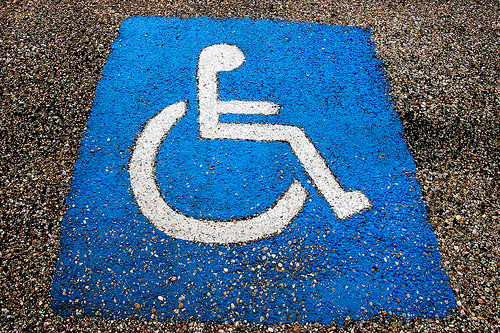I had a new question posed to me that I have not received before. I do not believe that it is governed by any code language, but I was wondering if anyone has encountered this situation before. 100% occupied private office building in CA with more accessible parking spaces than is code required. Parking is at a premium here for regular parkers. Most every tenant has a quantity of reserved spaces in their leases and the spaces are designated as reserved with the tenants name and the terminology "reserved" at each parking space.
There are many people with disabled placards and the disabled spaces fill up early in the am. The folks with disabled placards that show up for work mid-morning have no designated accessible spaces to park in because they are filled. The question that I have received from building management is this..................Several of the disabled people that show up and the accessible spaces are filled claim that they are entitled to park in any space they so desire irregardless of if they are marked as reserved. So they park in the closest reserved space to the building entry.
I do not believe that there is any code language that would address this situation. Have any of you encountered this? I absolutely do not believe that this is true, proper, and or acceptable on private property where these spaces are actually reserved for individual tenants thru lease language. I say warn them once and then tow them if they repeat. I believe this to be a building management issue as well as an HR issue for the offending parkers company. What say you?
There are many people with disabled placards and the disabled spaces fill up early in the am. The folks with disabled placards that show up for work mid-morning have no designated accessible spaces to park in because they are filled. The question that I have received from building management is this..................Several of the disabled people that show up and the accessible spaces are filled claim that they are entitled to park in any space they so desire irregardless of if they are marked as reserved. So they park in the closest reserved space to the building entry.
I do not believe that there is any code language that would address this situation. Have any of you encountered this? I absolutely do not believe that this is true, proper, and or acceptable on private property where these spaces are actually reserved for individual tenants thru lease language. I say warn them once and then tow them if they repeat. I believe this to be a building management issue as well as an HR issue for the offending parkers company. What say you?

